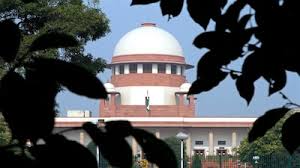‘Denotes lack of trust’: Secretly recorded phone call by spouse can be used as evidence in divorce cases, says SC

In a significant ruling, the Supreme Court of India has said that a spouse can use secretly recorded phone calls as evidence in divorce cases. The decision touches on privacy, marital trust, and the use of electronic evidence in family law.
Trust Issues, Not Illegal
The court said that recording a partner’s phone call without permission shows a lack of trust, but that alone doesn’t make the act illegal. In many divorce cases, trust has already broken down. The judges noted that such recordings can help the court understand the relationship’s reality.
“If the recording is relevant and not forced or tampered with, the court can consider it,” the bench stated.
The Case That Prompted the Ruling
This decision came after one spouse submitted a phone recording to support their divorce claim. The other side argued that the recording invaded privacy and shouldn’t be accepted. But the court explained that privacy in a marriage differs from privacy in other areas. Once a marriage breaks down, the rules around privacy may shift, especially during legal proceedings.
The court added that truth and fairness are vital in family disputes, and relevant recordings can help judges reach a just decision.
Legal Experts React
Lawyers see this as a major change. In the past, Indian courts were cautious about allowing secret recordings in divorce matters. This ruling opens the door for using audio evidence, as long as it’s not fake or illegally obtained.
However, experts also warned about growing surveillance between partners. “Recording a spouse secretly may help in court, but it could make relationships even more toxic,” said a senior family lawyer.
Balancing Privacy and Justice
The court’s decision tries to strike a balance. On one hand, people have a right to privacy. On the other, the court must find the truth in divorce cases. The court said that it will assess each recording individually. Judges will check if the evidence is fair, truthful, and necessary for the case.
Key Points
- Secret recordings are now admissible in divorce cases if relevant and authentic.
- Privacy concerns must be balanced against the need for justice.
- Recording a partner secretly reflects broken trust, not criminal behavior.
- Each case will be judged individually, and courts will verify the reliability of the evidence.
Conclusion
The Supreme Court’s decision marks a new chapter in family law. In a digital world where many conversations happen over the phone, courts are adapting. While the ruling may help some partners prove their case, it also reminds us how fragile trust has become in many modern marriages.






